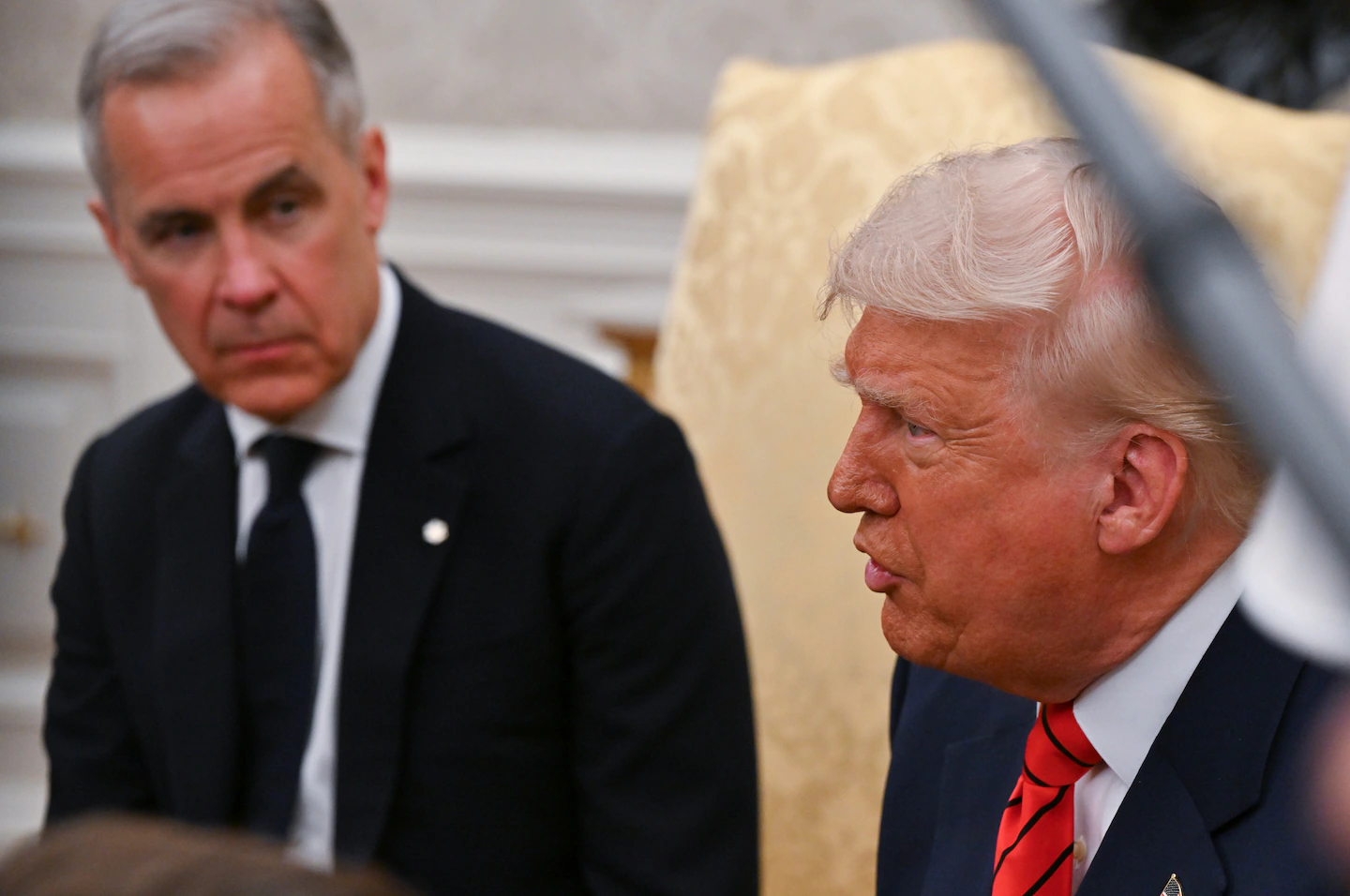After resetting relationship with Canada, Trump attacked its plans to collect digital services taxes in a social media post announcing plans to end trade negotiations with America’s closest ally.
President Donald Trump on Friday abruptly halted trade talks with Canada, citing the country’s plans to collect new taxes from large tech companies including Meta, Google, Amazon and other U.S. businesses.
Trump called the taxes, which are due Monday, “a direct and blatant attack on our Country” in a post to social media that branded America’s closest ally as a “difficult” partner. “They were foolish to do it,” he continued, at an unrelated news conference Friday. “So I said, we’re going to stop all negotiations with Canada right now until they straighten out their act.”
The sharp criticism marked a dramatic reversal from Trump’s recent tone with Canadian Prime Minister Mark Carney, who hosted him at the Group of Seven summit of world leaders last week. There, the pair sought to repair a rift Trump opened by repeatedly calling to annex Canada as the 51st state. The blowup imperils progress on consequential negotiations and signals the White House’s alignment with tech leaders who view Trump as more friendly to their interests than former president Joe Biden.
American tech companies have aggressively lobbied against the taxes, which would apply to revenue that companies earn from online marketplaces, social media services and data sales that involve Canadian users. Carney said Friday that he has not talked with Trump about the Truth Social post on the taxes, which apply to all companies that make more than 20 million Canadian dollars from digital services — a limit that American tech companies argue provides an exemption for smaller businesses in the country.
Last week, he said the two nations were accelerating efforts to achieve a new security and trade relationship and hoped to wrap it up within 30 days. “We’ll continue to conduct these complex negotiations in the best interest of Canadians,” he told reporters in Ottawa on Friday.
Trump has wielded U.S. trade policy as a cudgel to extract concessions from other countries since taking office in January, often declaring victory even as he walks back some of his most aggressive measures. He has said his goal is to erase persistent imbalances in global trade, which he argues have hollowed out domestic manufacturing. But economists and businesses have warned that increased tariffs will result in higher prices for consumers.



